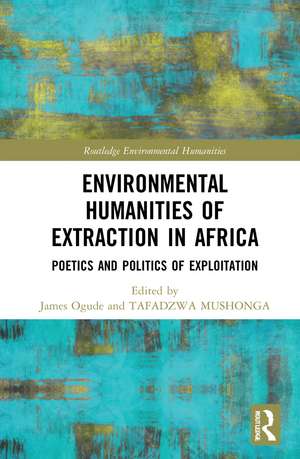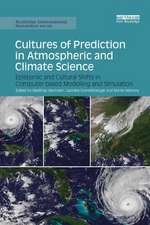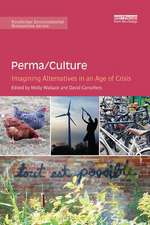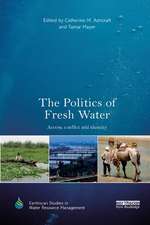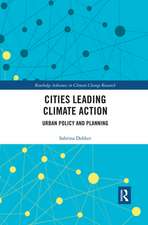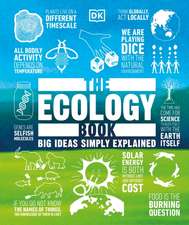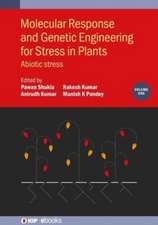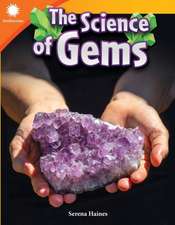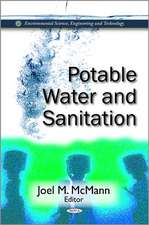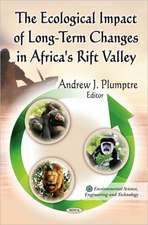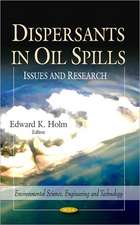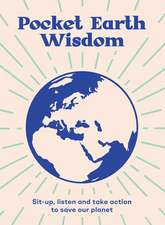Environmental Humanities of Extraction in Africa: Poetics and Politics of Exploitation: Routledge Environmental Humanities
Editat de James Ogude, Tafadzwa Mushongaen Limba Engleză Paperback – 27 mai 2024
Colonial patterns of resource use and capital accumulation continue unabated, making environmental and related socio-political problems a dominant feature of African economies. The book pursues the manifestation of these problems through four themes: environmental justice, violent capitalocenes, indigenous knowledge, and climate change. The editors locate the book within the broad fields of political ecology and environmental geopolitics to highlight the intricate geographies of resource exploitation across Africa. It uniquely focuses on the socio-political and geopolitical dynamics associated with the exploitation of Africa’s natural resources and its people. The case studies from different parts of Africa tell a compelling story of resource exploitation, related issues of environmental degradation in a continent particularly vulnerable to climate change, and the continued plundering of its natural resources.
The book will be of great interest to scholars and students from the interdisciplinary fields of the environmental humanities and environmental studies more broadly, as well as those studying political ecology, environmental policy, and natural resources with a specific focus on Africa.
| Toate formatele și edițiile | Preț | Express |
|---|---|---|
| Paperback (1) | 389.66 lei 6-8 săpt. | |
| Taylor & Francis – 27 mai 2024 | 389.66 lei 6-8 săpt. | |
| Hardback (1) | 1000.27 lei 6-8 săpt. | |
| Taylor & Francis – 17 aug 2022 | 1000.27 lei 6-8 săpt. |
Din seria Routledge Environmental Humanities
-
 Preț: 295.41 lei
Preț: 295.41 lei -
 Preț: 289.52 lei
Preț: 289.52 lei -
 Preț: 302.46 lei
Preț: 302.46 lei -
 Preț: 303.89 lei
Preț: 303.89 lei -
 Preț: 295.00 lei
Preț: 295.00 lei -
 Preț: 288.30 lei
Preț: 288.30 lei -
 Preț: 386.32 lei
Preț: 386.32 lei -
 Preț: 340.65 lei
Preț: 340.65 lei -
 Preț: 281.14 lei
Preț: 281.14 lei -
 Preț: 310.51 lei
Preț: 310.51 lei -
 Preț: 280.72 lei
Preț: 280.72 lei -
 Preț: 369.99 lei
Preț: 369.99 lei -
 Preț: 288.72 lei
Preț: 288.72 lei -
 Preț: 303.89 lei
Preț: 303.89 lei -
 Preț: 326.78 lei
Preț: 326.78 lei -
 Preț: 311.41 lei
Preț: 311.41 lei -
 Preț: 288.38 lei
Preț: 288.38 lei -
 Preț: 191.93 lei
Preț: 191.93 lei -
 Preț: 347.74 lei
Preț: 347.74 lei - 18%
 Preț: 1050.78 lei
Preț: 1050.78 lei - 20%
 Preț: 1046.91 lei
Preț: 1046.91 lei - 28%
 Preț: 821.14 lei
Preț: 821.14 lei -
 Preț: 446.53 lei
Preț: 446.53 lei - 18%
 Preț: 1001.84 lei
Preț: 1001.84 lei -
 Preț: 441.74 lei
Preț: 441.74 lei - 26%
 Preț: 850.17 lei
Preț: 850.17 lei - 18%
 Preț: 1001.84 lei
Preț: 1001.84 lei -
 Preț: 369.95 lei
Preț: 369.95 lei -
 Preț: 415.24 lei
Preț: 415.24 lei - 18%
 Preț: 1001.07 lei
Preț: 1001.07 lei - 18%
 Preț: 1054.71 lei
Preț: 1054.71 lei - 18%
 Preț: 1000.87 lei
Preț: 1000.87 lei - 26%
 Preț: 819.09 lei
Preț: 819.09 lei - 18%
 Preț: 1171.19 lei
Preț: 1171.19 lei - 18%
 Preț: 1000.27 lei
Preț: 1000.27 lei - 16%
 Preț: 277.74 lei
Preț: 277.74 lei - 18%
 Preț: 1000.27 lei
Preț: 1000.27 lei -
 Preț: 403.91 lei
Preț: 403.91 lei - 15%
 Preț: 297.57 lei
Preț: 297.57 lei - 18%
 Preț: 1002.63 lei
Preț: 1002.63 lei - 18%
 Preț: 1053.16 lei
Preț: 1053.16 lei - 13%
 Preț: 297.99 lei
Preț: 297.99 lei - 18%
 Preț: 1004.20 lei
Preț: 1004.20 lei
Preț: 389.66 lei
Nou
Puncte Express: 584
Preț estimativ în valută:
74.57€ • 77.57$ • 61.56£
74.57€ • 77.57$ • 61.56£
Carte tipărită la comandă
Livrare economică 15-29 aprilie
Preluare comenzi: 021 569.72.76
Specificații
ISBN-13: 9781032263618
ISBN-10: 103226361X
Pagini: 208
Ilustrații: 18
Dimensiuni: 156 x 234 mm
Greutate: 0.45 kg
Ediția:1
Editura: Taylor & Francis
Colecția Routledge
Seria Routledge Environmental Humanities
Locul publicării:Oxford, United Kingdom
ISBN-10: 103226361X
Pagini: 208
Ilustrații: 18
Dimensiuni: 156 x 234 mm
Greutate: 0.45 kg
Ediția:1
Editura: Taylor & Francis
Colecția Routledge
Seria Routledge Environmental Humanities
Locul publicării:Oxford, United Kingdom
Public țintă
PostgraduateCuprins
1. Introduction: The intractable problem: Africa and the pitfalls of resource exploitation in a globalising world 2. Petitioning the future through environmental justice: A reading from Angola 3. African Goats, the State and conservation in colonial Zimbabwe, 1892 -1970s 4. The politics of exclusion and violence in protected areas 5. The politics of mining pollution in Zambia: Investigating 100 years of environmental management in the Copperbelt 6. "Aesthetics of the Earth": African Literature as a witness to postcolonial ecology 7. ‘One in heart as they are in tongue’: ‘Yoruba’, land and environmental violence in colonial southwestern Nigeria 8. A Revaluation of traditional ecological thoughts, knowledge and practices of the Aari of southern Ethiopia 9. Climate injustice: How it is affecting Africa 10. International environment law, the humanities nexus and some reflections on ‘creative legal solutions’ 11. Carbon dioxide, climate change, and an energy transition for a future Africa 12. Poetics and politics of resource exploitation in Africa: Insights from chapters
Notă biografică
James Ogude is the Director of the Centre for the Advancement of Scholarship, University of Pretoria, South Africa.
Tafadzwa Mushonga is a research fellow at the Centre for the Advancement of Scholarship, University of Pretoria, South Africa.
Tafadzwa Mushonga is a research fellow at the Centre for the Advancement of Scholarship, University of Pretoria, South Africa.
Descriere
This book brings together perspectives on resource exploitation to expose the continued environmental and socio-political struggles in post-colonial Africa. The book will be of great interest to scholars and students of the environmental humanities and environmental studies.
